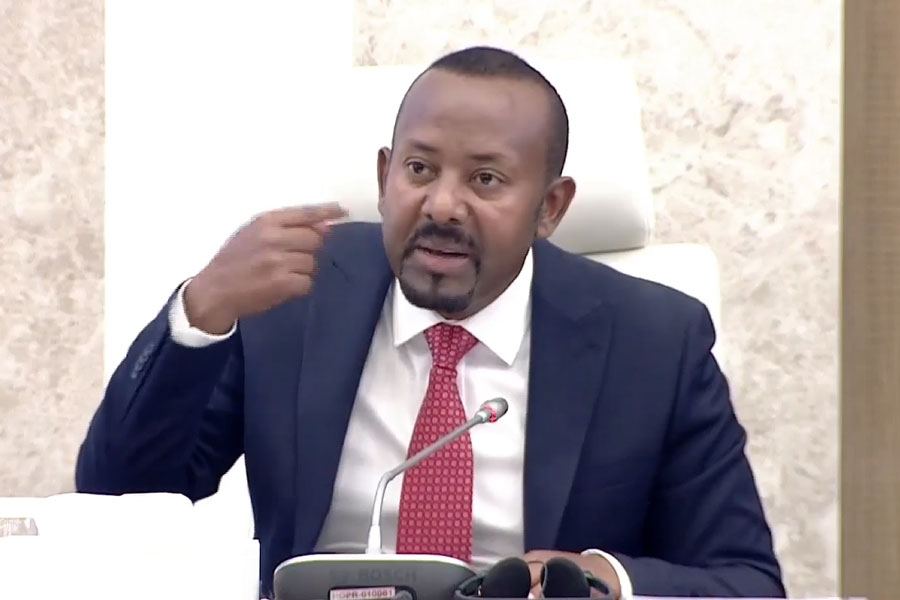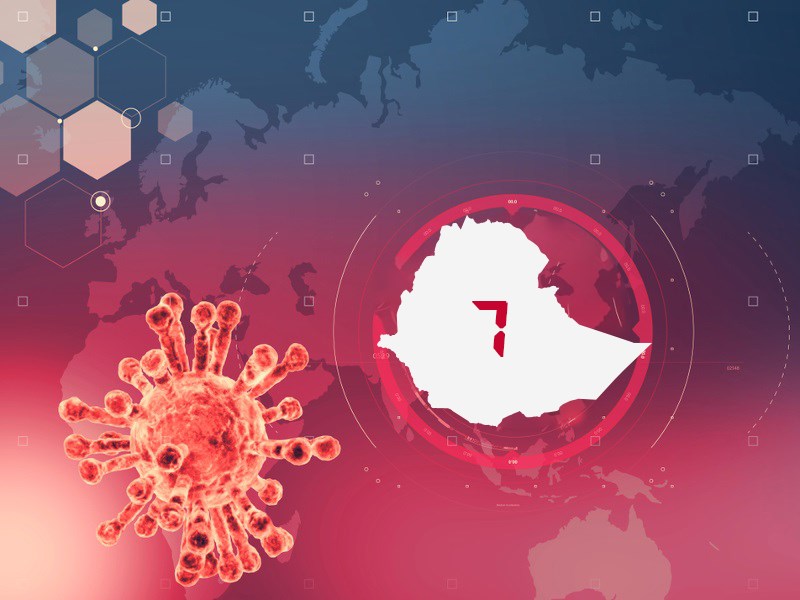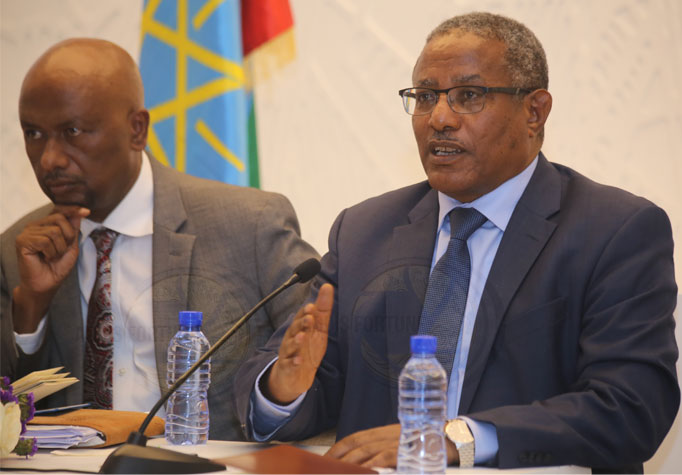
May 9 , 2020
By HAGOS GEBREAMLAK ( FORTUNE STAFF WRITER )
The government and the World Bank have scaled up the Urban Productive Safety Net Project, increasing the number of cities and beneficiaries under the programme.
For the project, which will be implemented in 83 urban centres, the World Bank has allocated half a billion dollars, while the government will contribute 238 million dollars. The project is expected to benefit 826,444 people throughout urban centres. The beneficiaries, which will be doubled in the new scheme, will receive 75 Br a day by working five hours a day, an increase of 10 Br over the first round.
The three-year Urban Productive Safety Net Project was started in 2017 with 450 million dollars, of which 300 million dollars was obtained from the World Bank. When it lapsed at the end of last December, the programme had benefited 604,000 urbanites throughout 11 cities including Addis Abeba.
Implemented jointly by the World Bank and Urban Job Creation & Food Security Agency, the programme has three components: direct support and safety net, livelihood improvement and job creation, and institutional capacity building.
This upgraded project has 513,512 public work beneficiaries, 190,932 direct support beneficiaries, 100,000 youth employment beneficiaries, and 22,000 of the urban destitute.
Under the programme, the beneficiaries receive financial literacy and life skills training to transform their livelihoods. And they engage in local development activities, waste management, urban beautification, reforestation and public works.
After they graduated, the beneficiaries are expected to come up with a business plan to start micro and small business enterprises. They are also required to save 20pc of the income they gain from the project to receive 500 dollars a person as seed money to start their own business.
The beneficiaries of the first Urban Productive Safety Net Project have already graduated from the programme in ten cities but not Addis Abeba.
The graduation of the beneficiaries in Addis Abeba did not happen since its programme started later than those in the other cities, Debebe Barud, coordinator of the Urban Productive Safety Net Project, told Fortune.
Beneficiaries of the first programme in Addis Abeba, who represent 70pc of the participants, saved around 744 million Br. The project included around 193,000 elders and children and 22,000 needy and homeless people.
“We evaluated the business projects of the graduated beneficiaries and gave business entrepreneurship training," said Debebe.
The project was crucial in terms of implementing socioeconomic activities such as solid waste management and public works, in addition to livelihood improvements, according to Debebe.
In the first six months of this fiscal year, 70,000tn of waste has been collected in the capital.
Under the scaled-up project, a person is required to work four days a month if they do not have a family. But a beneficiary with four family members will work for four days a week. Also, 60pc of the beneficiaries of the project are mandated to be women.
The World Bank has been assessing the project every six months through its joint review mission, and it undertook the sixth general assessment in December 2019.
The Urban Job Creation & Food Security Agency, which was established four years ago, planned to expand the Urban Productive Safety Net Project to 972 towns within five years.
Previously, the Safety Net Programmes were concentrated in rural areas, according to Debebe.
“Hence the government initiated the urban food security and safety net programme policy in 2011 as these are social protection and food security strategies, and the Urban Productive Safety Net Project was launched in 2017,” said Debebe.
However, Messay Mulugeta (PhD), an associate professor of development and food security studies at Addis Abeba University, is skeptical of the performance of the project.
“The previous project was poorly implemented, and it has brought little change in terms of poverty reduction, livelihood improvement, and micro and small business entrepreneurship,” he argued.
The project is important in terms of food access for the poorest of the poor and foreign currency, but it created dependency and aggravated corruption, according to the expert.
“The previous trends associated with such projects should be changed and corrected for these projects to bring good results,” recommended Messay. “The project should be implemented properly, and the beneficiaries should receive sufficient training."
PUBLISHED ON
May 09,2020 [ VOL
21 , NO
1045]

Radar | Jan 15,2022

Viewpoints | Jun 04,2022

Commentaries | Oct 05,2019

Fortune News | Mar 19,2020

Radar | Aug 31,2019

Fortune News | Mar 03,2020

Editorial | Dec 21,2019

Sunday with Eden | Oct 16,2020

Radar | Jan 22,2022

Viewpoints | Apr 10,2021

Dec 22 , 2024 . By TIZITA SHEWAFERAW
Charged with transforming colossal state-owned enterprises into modern and competitiv...

Aug 18 , 2024 . By AKSAH ITALO
Although predictable Yonas Zerihun's job in the ride-hailing service is not immune to...

Jul 28 , 2024 . By TIZITA SHEWAFERAW
Unhabitual, perhaps too many, Samuel Gebreyohannes, 38, used to occasionally enjoy a couple of beers at breakfast. However, he recently swit...

Jul 13 , 2024 . By AKSAH ITALO
Investors who rely on tractors, trucks, and field vehicles for commuting, transporting commodities, and f...

Oct 25 , 2025
The regulatory machinery is on overdrive. In only two years, no fewer than 35 new pro...

Oct 18 , 2025
The political establishment, notably the ruling party and its top brass, has become p...

Oct 11 , 2025
Ladislas Farago, a roving Associated Press (AP) correspondent, arrived in Ethiopia in...

Oct 4 , 2025
Eyob Tekalegn (PhD) had been in the Governor's chair for only weeks when, on Septembe...